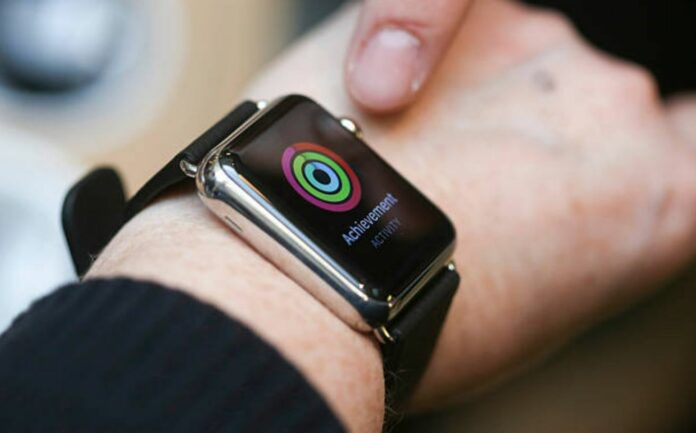Are health apps on smartwatches smart enough to find atrial fibrillation?
To check, researchers of the new study “tested the accuracy of the Apple Watch ECG app to detect AF [atrial fibrillation] in patients with a variety of coexisting ECG abnormalities.”
Researchers report in the Canadian Journal of Cardiology that mobile health technology used to find atrial fibrillation gives a high number of false positives and unclear results in some patients with certain heart conditions.
Longer monitoring of a patient’s heart and the use of implantable electronic devices for the heart can make it easier to find atrial fibrillation (AF), but the devices have some problems, like short battery life and no immediate feedback.
Can these obstacles be addressed by new smartphone technologies that capture an electrocardiogram (ECG) strip and produce an automatic diagnosis?
The largest study done so far, published by Elsevier in the Canadian Journal of Cardiology, shows that these devices are hard to use on people with abnormal ECGs.
According to researchers, improved algorithms and machine learning may enable these instruments to provide more accurate diagnoses.
“Earlier studies have validated the accuracy of the Apple Watch for the diagnosis of AF in a limited number of patients with similar clinical profiles,” says lead investigator Marc Strik. “We tested the accuracy of the Apple Watch ECG app to detect AF in patients with a variety of coexisting ECG abnormalities.”
734 consecutive hospitalized patients were included in the study. A 12-lead ECG was performed on each subject, which was immediately followed by a 30-second Apple Watch recording.
The automated single-lead ECG AF detections on the smartwatch were labeled as “no signs of atrial fibrillation,” “atrial fibrillation,” or “inconclusive reading.”
An electrophysiologist received recordings from a smartwatch and performed a blinded interpretation, diagnosing each trace as “AF,” “absence of AF,” or “diagnosis unclear.”
To determine the extent to which the observers agreed, a second blindfolded electrophysiologist analyzed 100 randomly selected signals.
In almost one out of every five patients, the wristwatch ECG was unable to generate an automated diagnosis. Patients with sinus node dysfunction, second- or third-degree atrioventricular block, premature atrial and ventricular contractions (PACs/PVCs), and automated AF detection were more likely to get false positive results.
Patients with ventricular conduction anomalies (interventricular conduction delay) or rhythms controlled by an implanted pacemaker were at a higher chance of having a false negative tracing (missed AF).
Most of the cardiac electrophysiologists agreed on how to tell the difference between AF and not-AF. The smartphone app accurately identified 78% of patients with AF and 81% of individuals without AF. The electrophysiologists correctly recognized 97% of the patients who had AF and 89% who did not.
The wristwatch ECG was particularly unreliable at identifying patients with atrial tachycardia (AT) and atrial flutter (AFL), and patients with PVCs were three times more likely to receive false-positive AF diagnoses.
“These observations are not surprising, as smartwatch automated detection algorithms are based solely on cycle variability,” Dr. Strik added, explaining that PVCs cause short and long cycles, which increase cycle variability. “Ideally, an algorithm would better discriminate between PVCs and AF. Any algorithm limited to the analysis of cycle variability will have poor accuracy in detecting AT/AFL. Machine learning approaches may increase smartwatch AF detection accuracy in these patients.”
This is the first “real-world” study concentrating on the use of the Apple Watch as a diagnostic tool for AF, according to Andrés F. Miranda-Arboleda, MD, and Adrian Baranchuk, MD, Division of Cardiology, Kingston Health Science Center, Kingston, ON, Canada, in an accompanying editorial.
“It is of remarkable importance because it allowed us to learn the performance of the Apple Watch in the diagnosis of AF is significantly affected by the presence of underlying ECG abnormalities. In a certain manner, the smartwatch algorithms for the detection of AF in patients with cardiovascular conditions are not yet smart enough. But they may soon be,” Dr. Miranda-Arboleda and Dr. Baranchuk added.
“With the growing use of smartwatches in medicine, it is important to know which medical conditions and ECG abnormalities could impact and alter the detection of AF by the smartwatch in order to optimize the care of our patients,” Dr. Strik added. “Smartwatch detection of AF has great potential, but it is more challenging in patients with pre-existing cardiac disease.”
Source: 10.1016/j.cjca.2022.08.222
Image Credit: Getty
You were reading: “Tested The Accuracy Of The Apple Watch ECG App To Detect Atrial Fibrillation” – Here’s What You Need to Know
